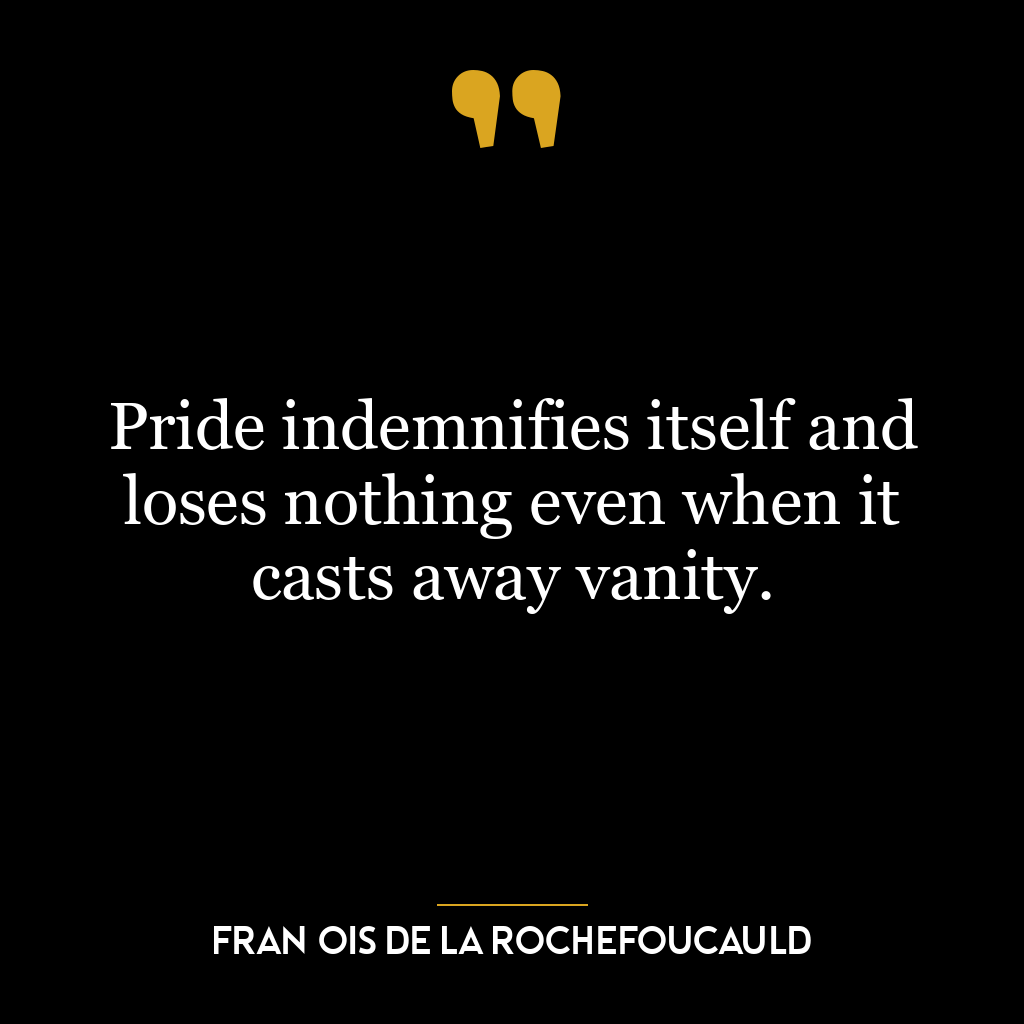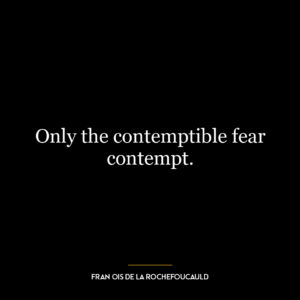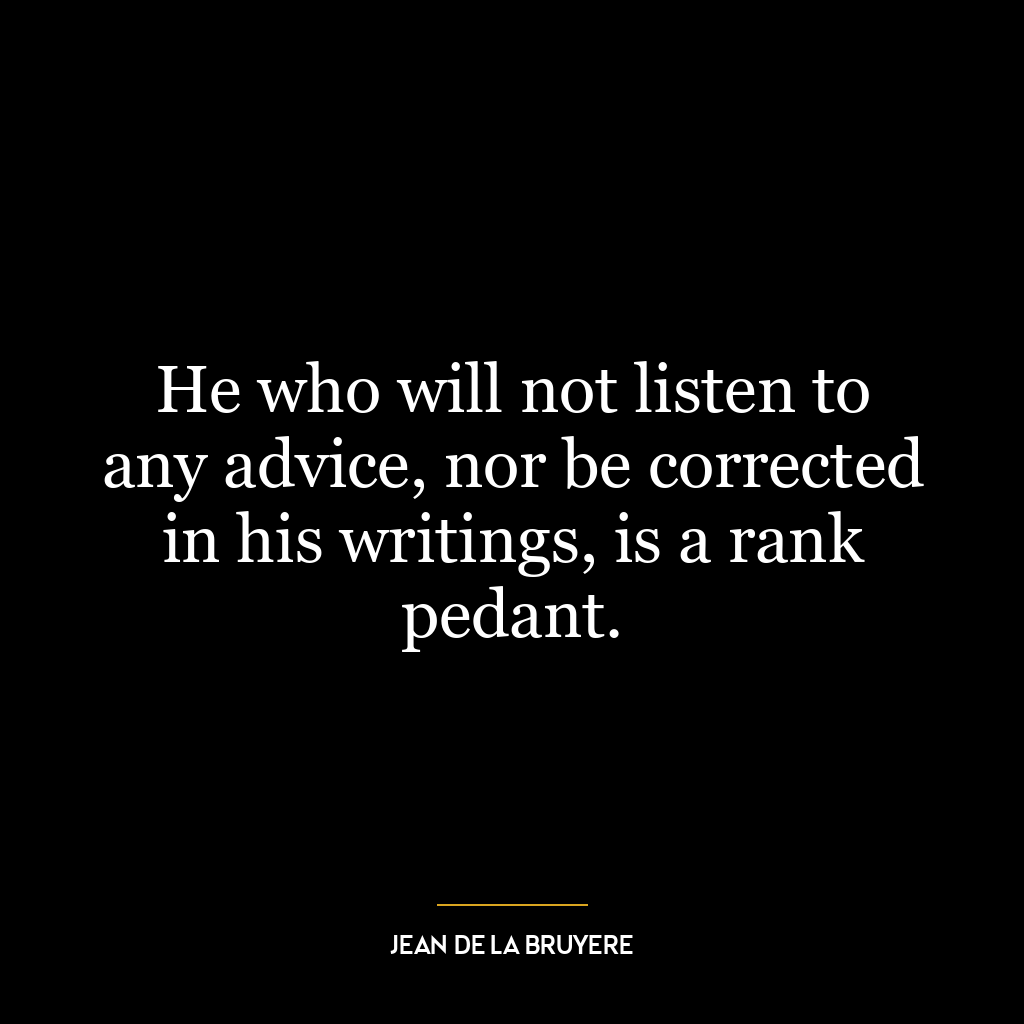This quote suggests that pride is a self-sustaining emotion that doesn’t lose its value or strength even when it discards vanity. Pride, in this context, can be seen as self-respect or self-worth, while vanity is excessive pride in one’s appearance or achievements. The author is saying that even when we let go of our vanity – our obsession with our looks, achievements, or status – our genuine pride, our self-respect and self-worth, remain intact.
On a deeper level, it implies that true pride is not superficial or external, but rather an internal state of self-appreciation and self-acknowledgment. When we let go of vanity, we are not diminishing our pride, but rather purifying it, making it more about our inner value and less about external validation.
Applying this concept to today’s world, it’s clear that we live in a society where vanity is often mistaken for pride. Social media platforms, for instance, can encourage vanity by focusing on appearances, achievements, and social status. However, this quote reminds us that genuine pride comes from within and is not dependent on external validation.
In terms of personal development, this quote can be a powerful reminder to focus on cultivating a sense of self-worth that is not reliant on external factors. It encourages us to let go of vanity and instead focus on building genuine self-respect. This can lead to a healthier self-image, increased confidence, and a stronger sense of self-worth. It’s about recognizing and appreciating our intrinsic value, rather than seeking validation from external sources.










